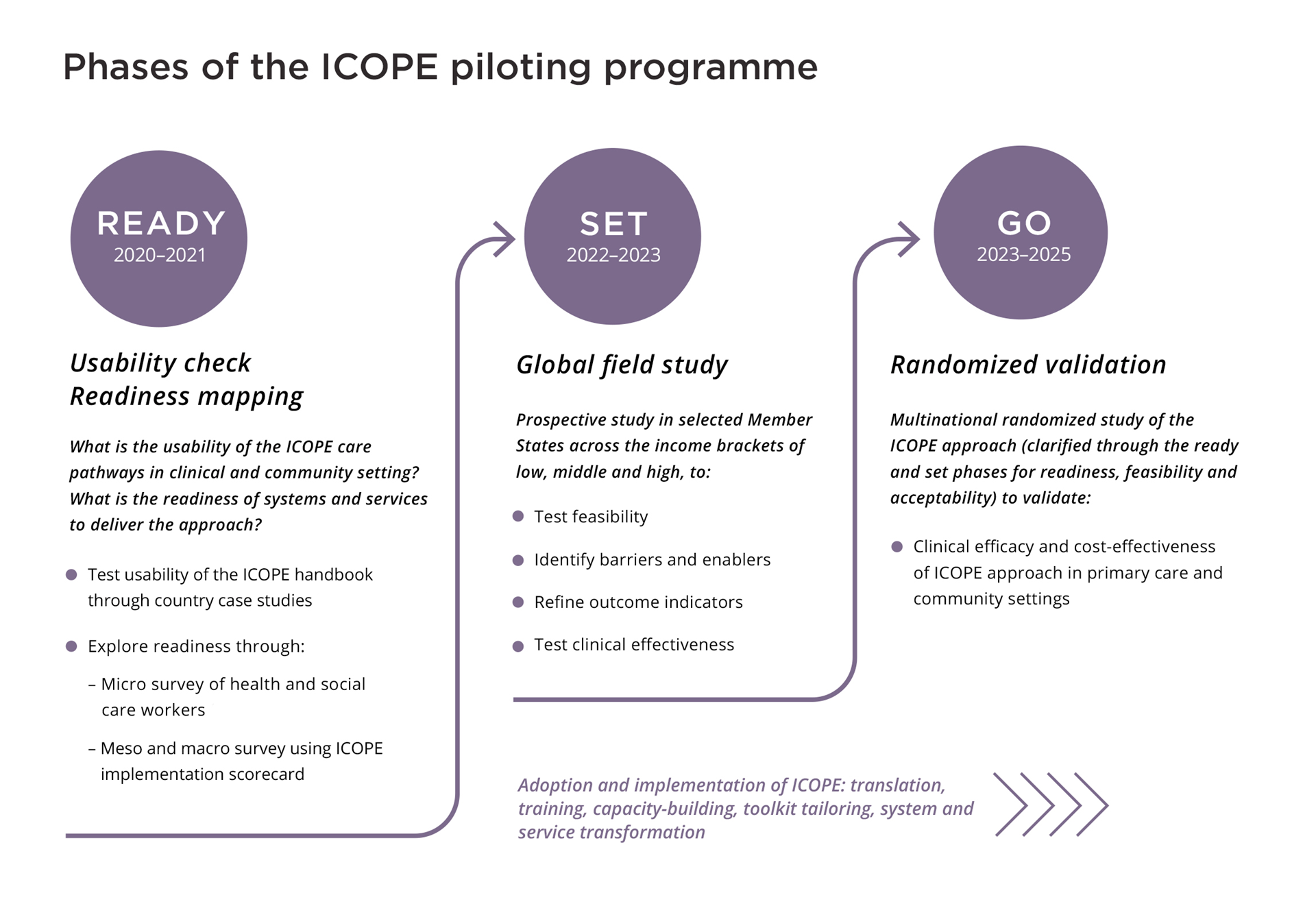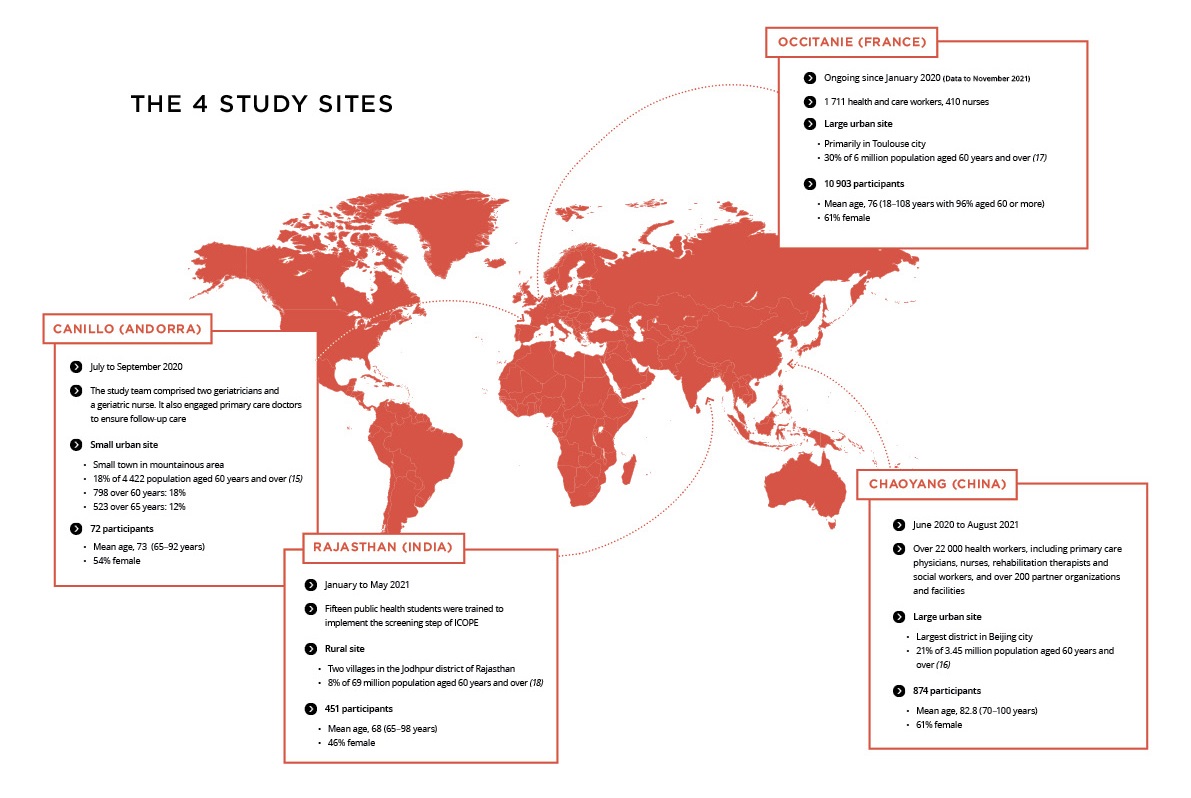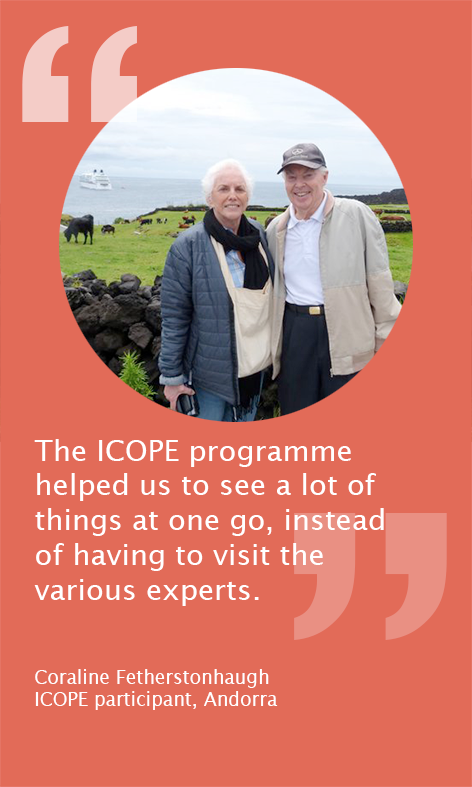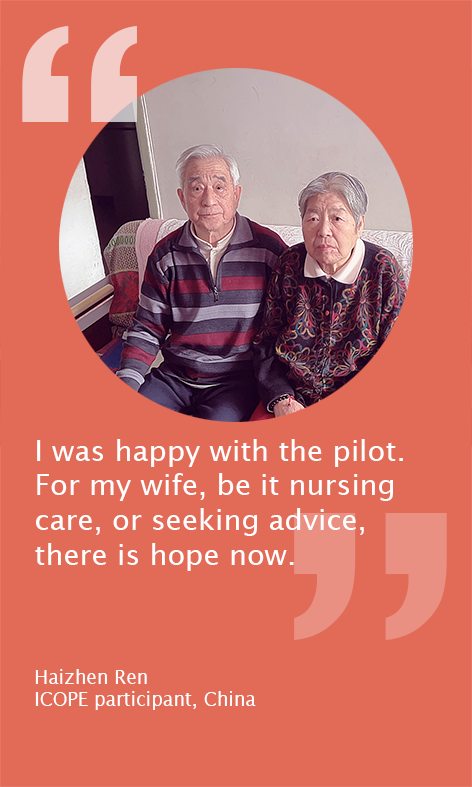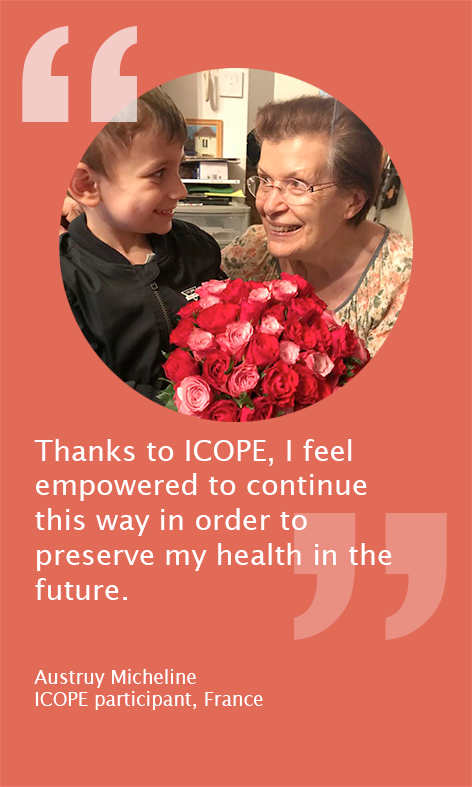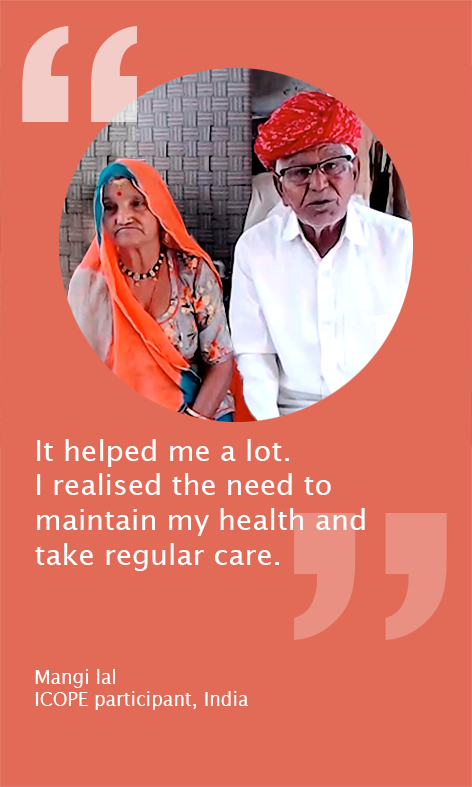ICOPE Implementation pilot programme
The integrated care for older people (ICOPE) approach was developed in recognition of the need for a transformation of health and social care systems and services to deliver integrated and person-centred care for older people.
In 2020 WHO launched an ICOPE implementation pilot programme consisting of three phases – ready, set and go.
The READY phase
The ready phase was conducted between 2020 and 2021. The objective was to evaluate the readiness and feasibility to implement ICOPE, focusing on micro, meso and macro levels. The objectives at each of these levels included:
- Clinical (micro) level: testing the useability of the ICOPE handbook through the development of country case studies based on local pilot studies
- Clinical (micro) level: conducting a survey with health and social care workers to determine the acceptability and feasibility of the approach, by learning how integrated care is provided in clinical and community settings
- Service (meso) and system (macro) level: conducting a survey using the ICOPE implementation scorecard to assess the capacity of available services to respond to care needs, identifying challenges and enablers
These objectives for the micro, meso and macro levels were met through the three sub-studies conducted during the ready phase:
2. Micro survey with health and care workers
A survey was conducted to seek health and care workers views on the enablers and barriers to the implementation of ICOPE in their clinical and community settings. The survey also captured health and care workers attitudes towards integrated care and the required changes to their clinical practice. Responses to the survey were received from 260 health and care workers from 29 nominated Member States.
3. Service and systems level survey
The ICOPE implementation scorecard survey was used to assess readiness to implement integrated care at the services and systems levels. The survey captured respondents’ views of implementation readiness in relation to:
Services
- engaging and empowering people and communities
- the coordination of services delivered by multidisciplinary providers
- orienting services towards community-based care
Systems
- strengthening governance and accountability systems
- enabling system-level strengthening
259 responses were received from 35 nominated Member States.
Related resources
Related articles
Implementation of the WHO integrated care for older people (ICOPE) programme in clinical practice: a prospective study by Neda Tavassoli, Philipe de Souto Barreto, Caroline Berbon, Celine Mathieu, Justine de Kerimel, Christine Lafont, et al. The lancet Healthy Longevity (June 2022)
Intrinsic capacity of rural elderly in Thar Desert using WHO ICOPE (integrated care for older persons) screening tool: a pilot study by Mathur A, Bhardwaj P, Joshi NK, Jain YK, Singh K. (February 2022 - preprint)
Implementation of the WHO COPE in Clinical Practice: Experience of the First Remote ICOPE Monitoring Platform by Neda Tavassoli, Caroline Berbon, Céline Mathieu, et al. (January 2022 - preprint)
Launch event
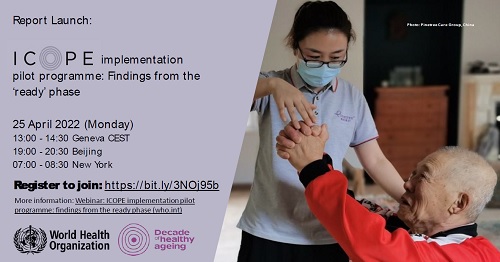
Virtual event 25 April 2022

WHO ICOPE implementation pilot programme: findings from the ‘ready’ phase Dr Yuka Sumi
See the presentationFrench version (

